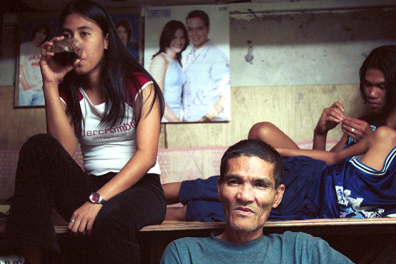Study Days "Beyond the buying and selling of sex. Decompartmentalizing prostitution studies", May 30 and 31

Journées d'études organized by the Centre d'études en sciences sociales sur les mondes africains, américains et asiatiques - CESSMA (Inalco - Université Paris Cité - IRD).
Monday 30 and Tuesday 31 May 2022 - 09:00-18:00 - PLC - Salle 3.15
Inalco, PLC - 65, rue des Grands Moulins - 75013 Paris
Free admission
contact: View e-mail; View e-mail; View e-mail
Beyond the buying and selling of sex. Decompartmentalizing studies on prostitution
These study days offer an offbeat look that decompartmentalizes studies on prostitution by starting from aspects less directly linked to the buying and selling of sex in the lives of men, women and LGBTI+ people who pursue this activity in countries of both the North and the South. The proposed decompartmentalization of prostitution studies has empirical, theoretical and epistemological objectives. The researchers gathered for these two days will elaborate on their ways of thinking about the sociological sides of prostitution, focusing on several themes:
- Family: relations between prostitutes and their families (parents, siblings, etc.), the generational reproduction of prostitution, conjugality, care economies and interdependence, children and education.
- After prostitution: social mobility (capitalization, investment, training, retraining), the third age (retirement, pension, alternative modes of financing), access to social benefits, mutual aid and solidarity networks, peer relationships.
- Administrative life: social security, taxation, administrative constraints, access to health services, education for children.
- Financial life: financial inclusion and/or exclusion, access to formal or informal credit, indebtedness, over-indebtedness, pledging (work, material goods, relationships), gender and debt, income management, income outside prostitution (pluriactivity, etc.), theft.
- Ethics of self: social value, new forms of living, livable life.


